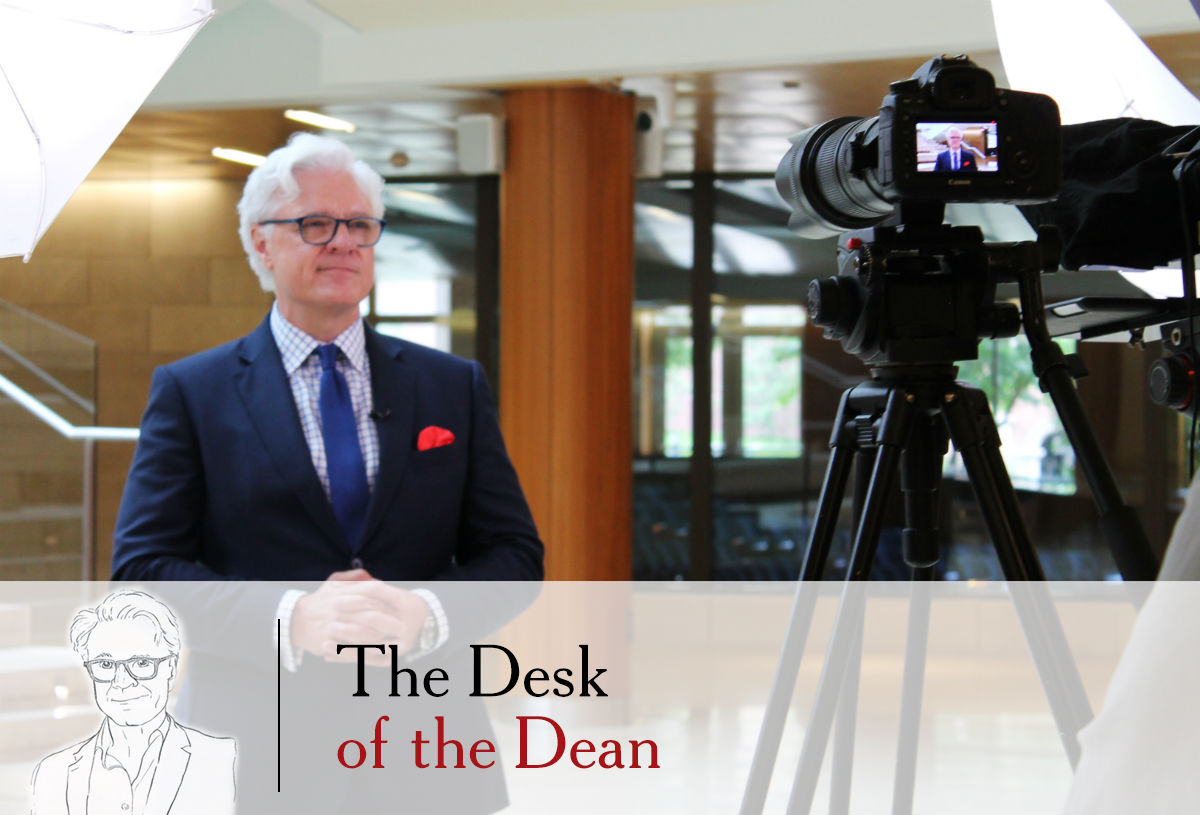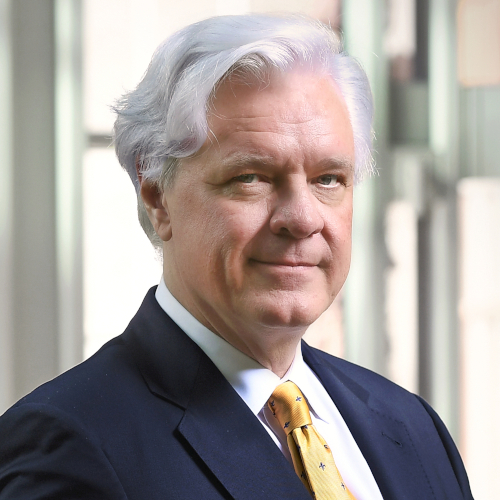Scholarships: The means to ‘know what we may be’
- August 9, 2018
- By Mark Taylor
- 2 minute read

Lord, we know what we are, but know not what we may be.
—Ophelia in Act IV, Scene 5 of Shakespeare's Hamlet
Someone supposedly once complained that Shakespeare’s Hamlet is full of quotations, and indeed, many lines from that great work have become familiar phrases in the English language, from “To be or not to be,” to “Alas, poor Yorick.”
One of my personal favourite lines from the play is, “Lord, we know what we are, but know not what we may be.”
Olin is a place that addresses the promise of that theme for students who may pass through our doors “knowing not what they may be.” With our world-class faculty, our dedicated staff and our alumni, we’re well able to help students know what they will be.
The trick, of course, is helping them pass through our doors in the first place.
That’s where scholarships come into play. WashU’s Olin Business School should be an elite institution, but never elitist. That means we want the best students in our community—regardless of their financial means. Anyone with the ability, talent and potential should be able to benefit from an Olin education.
A WashU education is by no means inexpensive, but this is not a new phenomenon. Even when National Council member Sidney Guller started earning his BSBA in 1943—and the average US income was $2,000 a year—Olin’s $250 annual tuition was a tough nut to crack.
At the time, scholarships were hard to come by. Guller worked at a local title company to make ends meet. That experience drove him to establish the Bobette and Sidney Guller Endowed Scholarship and many other gifts to the school.
Increasing scholarship support was an important component of Olin’s participation in the WashU Leading Together campaign, which closed in June. Building that support is vital to attracting talented and deserving students to our institution.
Based on preliminary numbers from Olin’s campaign, I’m pleased to note that Olin supporters have contributed more than $31.8 million toward 94 new endowed scholarships—double the number from 2009, before Leading Together began. Additionally, benefactors have contributed to an additional 266 named scholarships since 2010.
I’m looking forward to meeting one of our newest scholarship recipients. One MBA student this fall will receive a new scholarship that I’ve established, the William Shakespeare Scholarship. Will was a great businessman as well as an artist, so I consider this a terrific nod to the way we think about approaching business problems from a variety of perspectives.
Now, I’ll be expecting our first recipient to join The Dean’s Players at our next “Shakespeare at Olin” event. Who knows what he or she may be?
Pictured above: Dean Taylor recording a video to introduce the Olin brand campaign that accompanies our strategic plan. Building scholarship capacity is an important piece of our strategy.
Media inquiries
For assistance with media inquiries and to find faculty experts, please contact Washington University Marketing & Communications.
Monday–Friday, 8:30 to 5 p.m.
Sara Savat
Senior News Director, Business and Social Sciences
